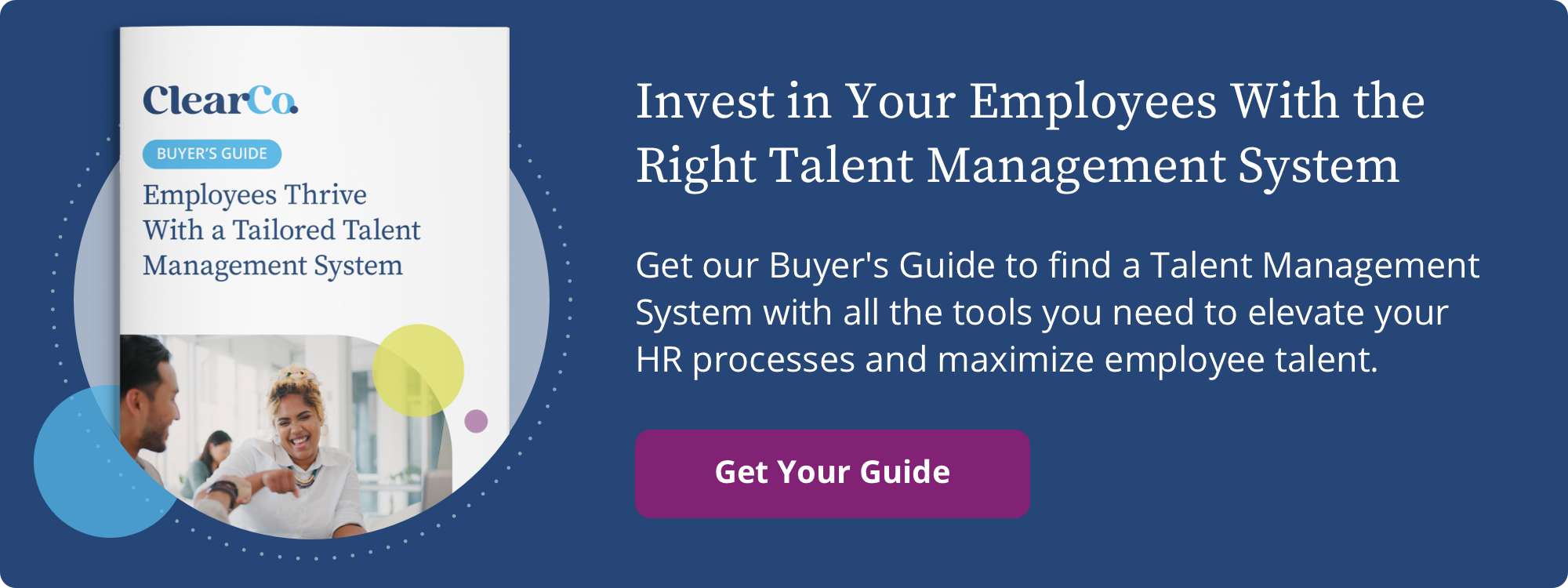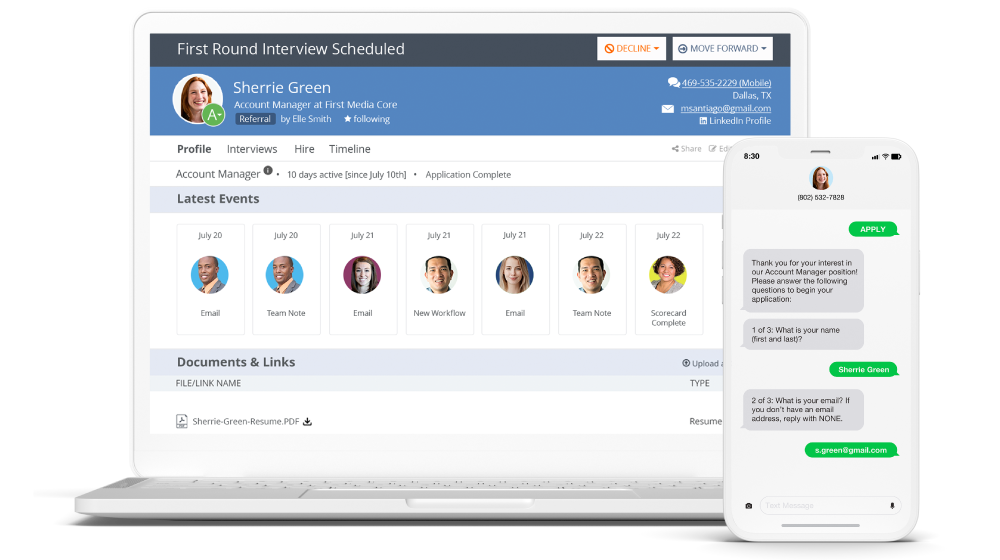It’s safe to say that healthcare was the industry most heavily impacted by the pandemic and the Great Resignation. One in five have quit their jobs since 2020, and 47% plan to by 2025. As a result, there’s a dire need for healthcare workers in the U.S. projected in the coming years:
- Deficit of 1.1 million registered nurses (RNs) by 2030
- Shortage of up to 124,000 physicians by 2034
- Demand for workers 3.2 million lower-wage positions including medical assistants, home health aides, and nursing assistants
The worker shortage is worsening skill gaps, which is the disparity between the skills employees possess and the skills demanded by their roles. Healthcare workers are picking up the slack from staffing shortages —it’s hard to find the time to upskill or reskill so they can keep up with the demands of advancing technology.
But skill gaps are cause for concern in healthcare, where patient care and safety are paramount. You need effective talent management strategies to bridge these gaps, achieve the best possible patient outcomes, and help your employees and organization succeed.
@ClearCompany shares Talent Management strategies for closing skill gaps in healthcare even with a shortage of more than 1 million RNs and 124,000 physicians:How Skill Gaps Impact Healthcare
When healthcare workers don’t have the skills they need, patient safety and satisfaction are affected. Healthcare professionals become more likely to make medical errors, which hurts patient trust and the provider’s reputation. Skill gaps can also lead to increased costs due to inefficient work and corrective training.
To remain successful and provide excellent patient care, healthcare organizations need to actively work against the effects of skill gaps.
What’s Contributing to the Skills Shortage in Healthcare?
- Lasting effects of the pandemic, including fear of exposure and emotional toll
- Growing levels of burnout
- A growing population aged 65+
- 40%+ of active physicians reaching retirement age in the next decade
- Financial incentives that draw younger professionals toward higher-paying specialties and higher-income areas
How to Close Skill Gaps with Talent Management Strategies
There’s a need for talent management in the healthcare industry that’s aimed at closing skill gaps. Let’s take a look at some of the strategies your HR team can use to encourage employees to grow their healthcare skill sets.
Employee Retention with Professional Development
Professional development helps you address skill gaps —and it’s a creative way to retain employees and enhances employee satisfaction and overall performance. Invest in ongoing training, workshops, and certifications to empower your workforce to stay up-to-date with the latest medical practices and technologies. You’ll also reap the benefits of employee retention, which include depth of knowledge and higher engagement.
You can retain and upskill your valuable healthcare employees with professional development opportunities:Proactive Workforce Planning
The shortage of healthcare workers isn’t a scary headline —it’s a reality that will impact your facility very soon if it hasn’t already. Do you know which workforce skills your company will need and how you’ll meet the demand? Workforce planning analytics can help you bridge gaps preemptively for a consistently proficient workforce.
First, perform a skills gap analysis to identify which skills need to be developed. You can also analyze demographic shifts and industry trends to help forecast the demand for specific skills. Then, you can determine skills you can teach —via training programs, workshops, coaching sessions, or other means —and which you’ll need to hire for. From there, you can create a workforce plan that includes promotions, internal transfers, and plans for hiring skilled workers.
Case Study: Halloran Consulting Group Elevates Life Sciences with ClearCompany
Halloran Consulting Group hires skilled talent 43% faster and rolled out an employee incentive program after switching to ClearCompany.
Strategies for All Generations
Healthcare workforces span several generations, so you need to customize your talent management approach to fit the preferences and motivations of diverse age groups. Here’s how:
- Attract the younger generation of skilled workers with a strong employer brand that appeals to their desire for purpose and learning.
- Offer a variety of ways to access skills development opportunities, including in-person and online.
- Foster a culture of learning to create an environment conducive to skill development for every employee.
Managing Burnout
The estimated burnout rate among healthcare workers is as high as 70%, and it’s what’s driven most healthcare workers to quit. You need strategies for managing burnout not just to retain employees, but to ensure they’re engaged enough to participate in upskilling or reskilling and benefit from it.
Help healthcare workers manage burnout with talent management software:
- Make mental health and employee resource group (ERG) materials easily accessible in an employee portal.
- Use employee surveys to ask for feedback on well-being to determine burnout levels and the impact of your wellness strategies.
- Keep an eye on employee performance overall to spot early warning signs of burnout.
Promote a Culture of Lifelong Learning
Continuous skill development helps healthcare employees provide better patient care. You can encourage that development with talent management processes that cultivate a company culture of learning.
Your HR team can do this by:
- Incentivizing professional development
- Creating a mentorship program
- Rewarding and recognizing employees when they learn new skills
- Seeking out educational opportunities and sharing them with your employees
- Creating learning paths for different roles
In healthcare, talent management strategies for closing skill gaps are essential if you want to hang onto employees who are more likely than any others to leave the industry altogether. When you help employees grow their skills, you can retain your valuable healthcare workers, win at hiring top talent, and provide top-notch patient care.
Solving skill gaps in healthcare has a direct impact on the quality of care that patients receive. That means as an HR professional in the industry, you have a direct impact on patient care. You need robust technology that can help you address skill gaps in healthcare and encourage employee development, key components of talent management.
Get a demo of ClearCompany’s Healthcare HR and Talent Management Software to see the tools that can help you foster a learning culture and close skills gaps:
- Find candidates — or current employees — with the skills you need thanks to Smart Search.
- Evaluate employee performance on a regular basis with performance reviews they can conveniently access from their phones.
- Utilize 1:1 meeting tools to increase communication between managers and employees, fostering collaboration and development.
- Set and track goals for new skill development.



